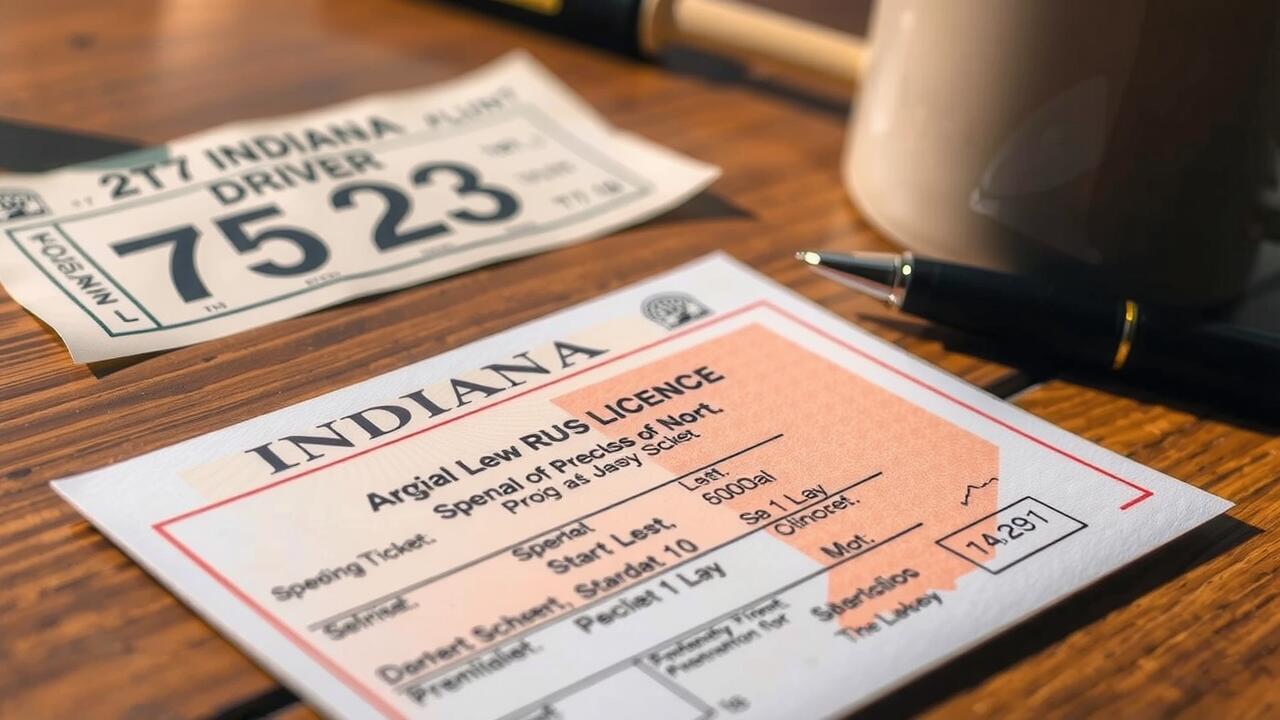
Table Of Contents
Costs Associated with the Application
Obtaining a hardship license in Indiana requires consideration of various fees. An application fee is typically required, which may vary depending on the county. In addition to this, individuals must also budget for the SR-22 filing fee, which is a form of insurance required for those with certain driving violations. Insurance rates can increase as a result, leading to additional ongoing costs throughout the period of licensing.
Other possible expenses include the cost of legal representation, especially if assistance is needed throughout the application process. Individuals may also need to pay for any required counseling or treatment programs mandated by the court or the state. Keeping these factors in mind will help applicants prepare financially for the entire process of securing a hardship license.
Breakdown of Fees and Expenses
When applying for a hardship license with an SR-22 in Indiana, it is crucial to understand the various fees involved. The application fee must be paid, which can vary depending on the specific circumstances of the case. Alongside this fee, you may also need to cover the cost of obtaining an SR-22, which is essentially a certificate of financial responsibility issued by your car insurance provider. This cost can fluctuate based on your insurance company and your individual risk profile.
In addition to direct fees, other expenses may arise during the process. For example, legal costs may emerge if you choose to hire an attorney to assist with your application, especially in cases where your situation is more complicated. Additionally, if you need to request a hearing or face potential fines related to past infractions, these can add to your overall financial burden. Being aware of these potential costs helps in financial planning before submitting your application.
Duration of Hardship License Validity
In Indiana, a hardship license is typically valid for a specific period that corresponds to the original suspension of the driver's license. Generally, this type of license lasts until the driver has fulfilled the requirements of their suspension period, which can vary based on the circumstances of the violation. It's important to note that even while holding a hardship license, any additional infractions may extend the duration of the suspension, impacting the timeline for regaining full driving privileges.
Renewal of the hardship license can be necessary if the suspension period is lengthy or if ongoing requirements remain unmet. Drivers must continue to meet certain conditions, such as maintaining SR-22 insurance. It is advisable to keep track of the expiration date of the hardship license to ensure compliance with state regulations and avoid any lapse in driving privileges.
Timeline and Renewal Process
The timeline for securing a hardship license in Indiana can vary based on individual circumstances. Typically, applicants will need to gather necessary documentation, pay applicable fees, and submit their application. Once submitted, the review process may take several weeks. If approved, the hardship license will be issued with specific restrictions.
Renewal of the hardship license typically occurs annually and requires the same documentation. It is crucial for applicants to maintain compliance with the conditions set forth during the approval of their initial license. Failing to do so may lead to complications during the renewal process or even jeopardize their ability to continue operating legally.
Common Challenges in the Application Process
Navigating the application process for a hardship license in Indiana can present several obstacles. One common challenge lies in gathering the necessary documentation. Applicants may struggle to compile proof of their financial circumstances or requirements set by the court. Inadequate documentation can lead to delays or even rejections, necessitating extra effort to ensure all paperwork is complete and accurate.
Another significant issue is meeting the specific requirements mandated by the state. Many applicants underestimate the importance of adhering strictly to timelines and necessary fees. Missing deadlines or failing to pay required expenses can result in setbacks. Individuals seeking a hardship license should familiarize themselves with the regulations and ensure they remain organized throughout the process to avoid these pitfalls.
Potential Pitfalls to Avoid
Navigating the application process for a hardship license can be fraught with challenges. One common mistake applicants make is failing to provide complete documentation. Missing paperwork can lead to significant delays or even rejection of the application. Ensuring that all required documents are gathered and submitted on time is crucial to maintaining progress.
Another pitfall is underestimating the importance of the SR-22 insurance requirement. Some applicants may not fully understand that they must maintain this form of financial responsibility throughout the duration of their hardship license. If the SR-22 lapses or isn’t renewed, it can result in the immediate suspension of driving privileges, creating further complications in an already challenging situation. Properly managing insurance coverage is essential for a successful outcome.
FAQS
What is a hardship license in Indiana?
A hardship license in Indiana allows individuals whose driving privileges have been suspended to drive under specific conditions, usually for work, school, or medical needs.
Why do I need an SR-22 to obtain a hardship license?
An SR-22 is a certificate of financial responsibility that proves you have the required liability insurance. It's often mandated by the state for drivers with certain violations, such as DUI or repeated offenses.
How long is a hardship license valid in Indiana?
The validity of a hardship license in Indiana typically lasts for the duration of your suspension, but it may require renewal depending on your specific circumstances and compliance with the terms set by the court.
What costs should I expect when applying for a hardship license with an SR-22?
You should budget for application fees, SR-22 filing fees from your insurance provider, and any additional costs related to reinstatement or required documents.
What are some common challenges when applying for a hardship license?
Common challenges include incomplete paperwork, failing to meet insurance requirements, and not adhering to the specific terms set forth by the court or the Indiana Bureau of Motor Vehicles.